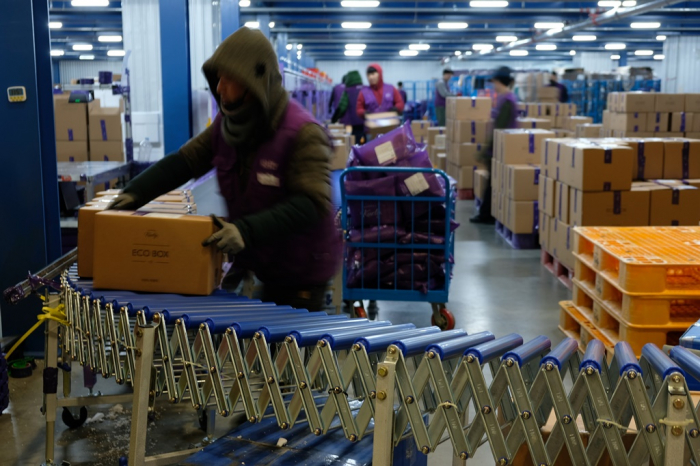South Korea’s Kurly Inc. nearly doubled its on-year losses on higher costs last year -- raising market controversy over its listing -- as the e-commerce unicorn geared up for an initial public offering later this year.
The operator of grocery delivery service Market Kurly logged an operating loss of 217.7 billion won ($178.7 million) in 2021, up 87.2% from the previous year, according to its annual report filed to a financial regulator. Selling and administrative expenses surged 79% to 511.3 billion won, overwhelming the 73.3% increase in gross profit to 293.5 billion won.
Kurly has been unable to ease investors’ chronic concerns over excessive variable costs, such as expenses on delivery and packaging, analysts said. Such costs usually rise when sales rise. But a growing company needs to cut those expenses to more quickly meet the breakeven point.
Kurly spends more for deliveries than other e-commerce platforms as its overnight delivery service has technical difficulties related to cold chain logistics. Its transportation costs, including commission fees, soared 86.2% to 108.9 billion won last year.
The operator of the gourmet food delivery platform, known for a so-called "dawn delivery" service, late last month applied for a preliminary review of its IPO with a target to raise around 1 trillion won. The company is expected to go public in the third quarter of this year.
It canceled a US listing plan in July last year to resume its domestic IPO process.A company in the red is allowed to go public
under eased IPO guidelines for unicorn startups if it has growth potential and achieves a market capitalization of at least 1 trillion won.
DIFFICULT TO RAISE PROFITABILITYKurly’s business model is difficult to fill losses and raise profitability as increasing expenses for packaging and delivery ramp up the cost of sales although customer transaction stays low, retail industry sources said.
Its competitor Oasis Corp. operates about 50 offline stores to reduce the inventory of perishable foods, while Kurly has none.
The startup took measures to enhance its earnings.
“Kurly started selling home appliances such as refrigerators and washing machines to improve profitability by raising customer transactions,” said a retail industry source.
Some experts, however, refuted worries about Kurly, saying the company’s strategy to keep focusing on growth resulted in higher variable costs.
Those optimists also said its fixed costs that have been rising on developer recruitments and others are expected to decline when its business reaches maturity.
Write to Jong-Kwan Park at
pjk@hankyung.comJongwoo Cheon edited this article.



